Ikoyi: The Duo Behind London’s Hottest Restaurant
There’s a palpable sense of anticipation as I arrive at Ikoyi to interview chef wunderkind Jeremy Chan and co-founder Iré Hassan-Odukale.
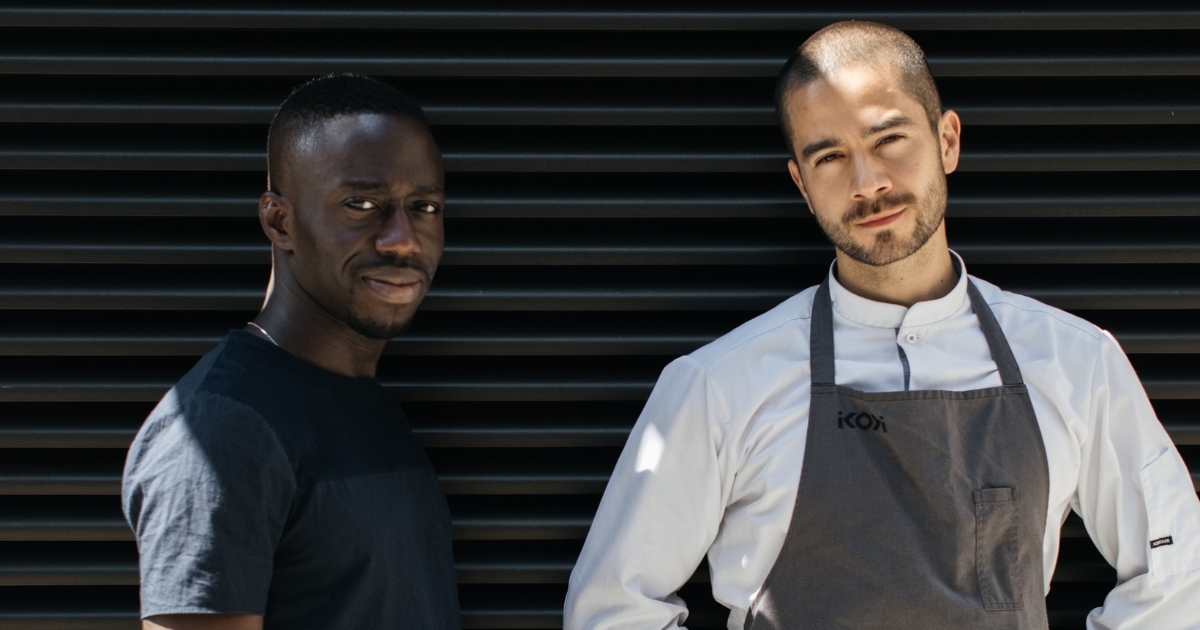
A porter bustles by pushing a trolley laden with produce while the front of house team, immaculately attired in black, form a civilised huddle in the centre of the restaurant to discuss the upcoming evening service, less than two hours from now.
Ikoyi’s interior exudes calm, showcasing a seamless blend of minimalism and elegance with flashes of architectural brilliance in the tactile copper clad walls and curved wire mesh ceilings. An open kitchen is visible from every well-spaced table with fixed lighting (there’s no changing the table layout here).
Tucked away inconspicuously on The Strand, you feel like you’ve entered another world. Indeed, this futuristic utopia offers a remarkable food concept like no other; a unique, heat and umami-infused reimagining of West African cuisine based on new and original ingredient and flavour combinations.
It’s unlike anything you might have tried before (unless you’re one of their regulars), earning Jeremy and his 21-strong team their second Michelin star two years ago - the first was awarded in 2018, just 14 months after they first opened in a tiny premises in nearby St James’s. They also featured on the World’s 50 Best Restaurants list in 2022.
“It’s beautiful isn’t it?” says Jeremy. “Every single thing you see - the ceramics, the lighting, the mesh ceiling, the materials - we’ve thought about. Everything has been selected or designed by us. We fed our designer David (Thulstrup) a very detailed mood board of materials, artists, sculptures and films, which included Alien, Blade Runner and Iron Man. The references here are more emotional, aesthetic and atmospheric than they were at our first venue. It’s a design experience yet there’s no artwork or ‘stuff’. It feels like more than just a restaurant.”
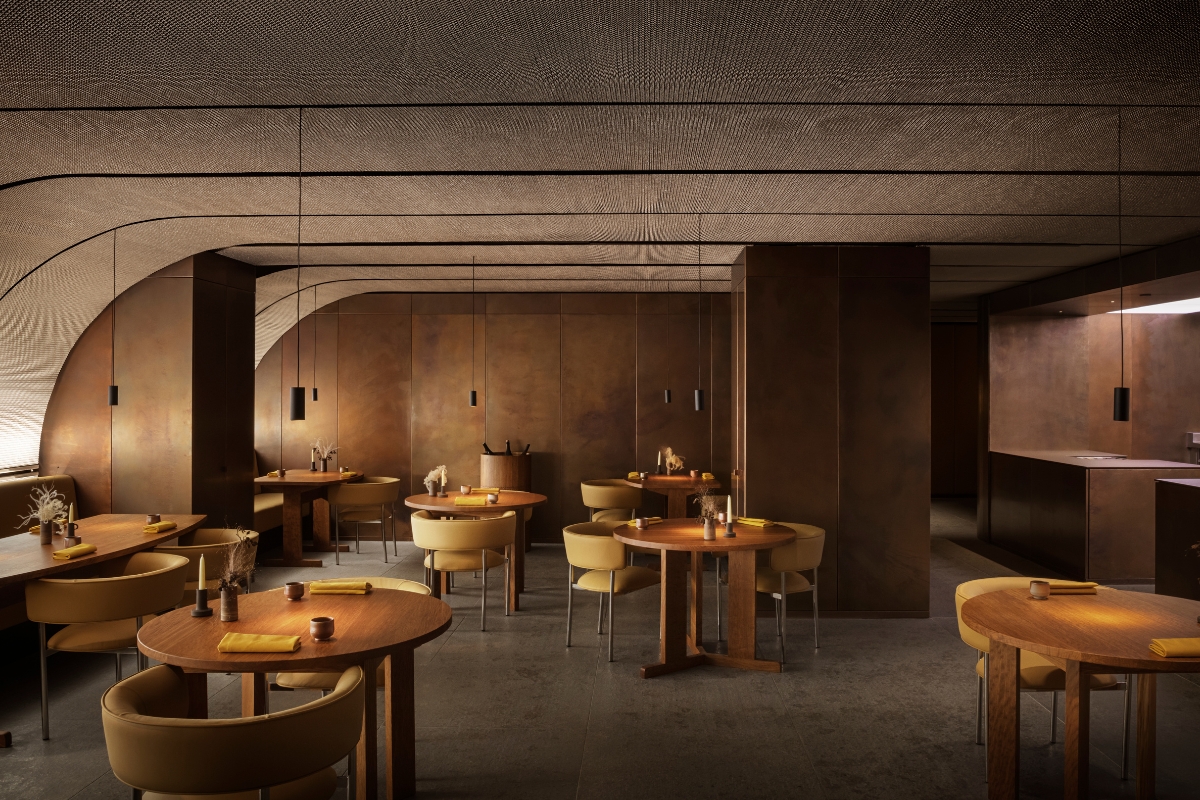
It really does too. The hospitality sector is notoriously unpredictable and insecure yet these childhood friends have majorly disrupted London’s food scene and created one of the globe’s most innovative restaurants. It’s a feat all the more amazing for the fact that both left their jobs in finance to establish Ikoyi with no formal kitchen training after a chance conversation.
“We were flatmates, I was cooking at home a lot and we’d often have friends over,” Jeremy recalls. “I realised I enjoyed making delicious food. Iré said he’d like to open a restaurant and would I be interested in helping him out and that’s where we started.
“We know each other very well. Luckily we’re both crazy but we are also ying and yang. Ire is very calm and I don’t have any fear of failure. I fear not getting the most from life - I’m only afraid that I’ll get too bored and it will be too simple.”
The son of a Canadian mother and a Chinese father, Jeremy grew up between Canada, Hong Kong and England while Iré was born and raised in Lagos, Nigeria, and together, they built their own spice-driven style around the flavours of Africa combined with British micro-seasonality featuring slow-grown vegetables, sustainable line-caught fish and aged British beef.
Says Iré: “We didn’t want to do anything that has already been done before. We don’t like to be restricted by the boundaries of cuisine and don’t want to cook one type of food in one way. Whatever our suppliers send us is what Jeremy and the team cooks that day – and that can only happen because we’re not restricted by our menu.”
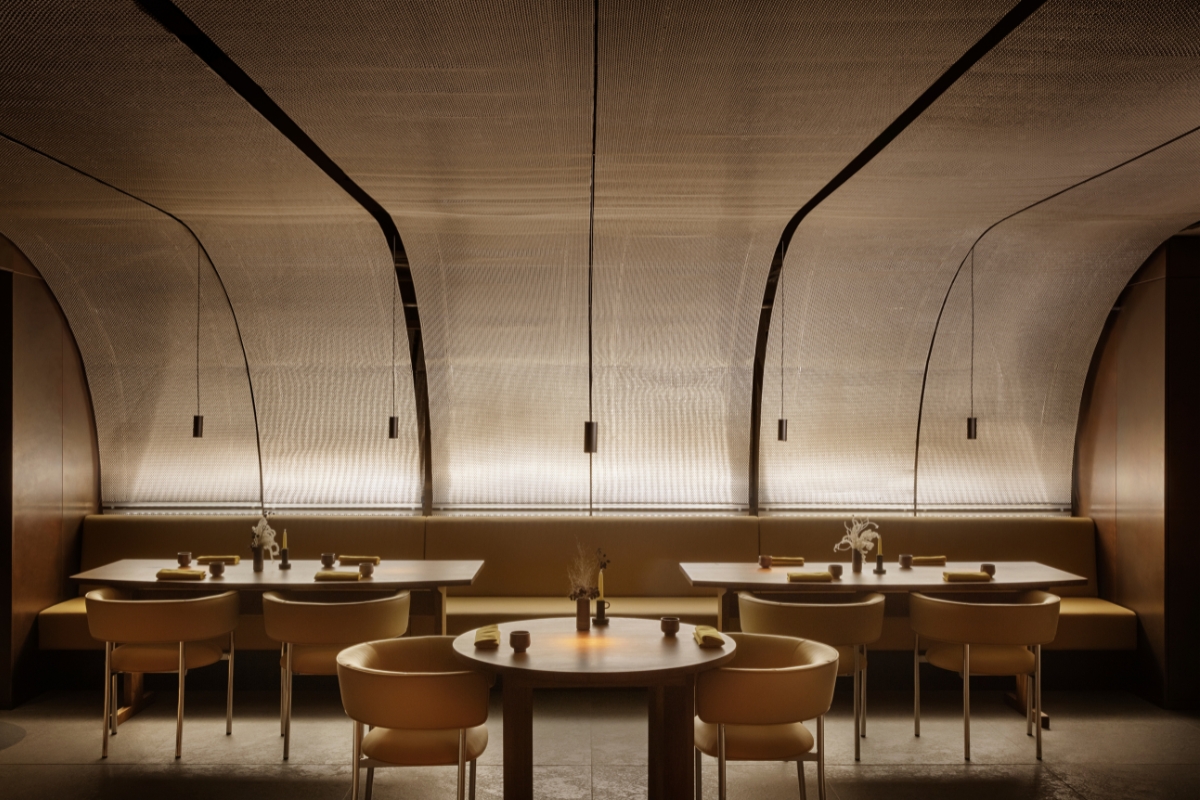
Back to the menu then, which somewhat defies categorization and has featured one week aged Cornish blue fin tuna served atop 130 day aged smoked Hereford rib and braised collard greens, chestnut fed pigeon aged in hay with langoustine, with kampot pepper and sea buckthorn gravy and morel and pimento butter tart filled with cep ragu, smoked beef truffle and aged Schrenckii caviar. Not forgetting husk cherry and rum cake, made from cherries which were picked and delivered the same day.
“We initially talked about creating a Nigerian restaurant and I started cooking plantains, using spices and making different sauces,” says Jeremy. “I’d go to the markets in Peckham and Brixton, alone and with Iré. I was going so much, people thought, who’s this white guy who knows the name of all these spices? It was a special time. I didn’t have much money, I’d left my banking job and I would just chat to the Nigerian and Ghanaian women there about the spices.
“It can be quite intimidating because it’s a very African/Nigerian community but to be able to have an open-minded cultural exchange, well, it’s the same approach you’ll find at the restaurant regarding flavours and ingredients.
“At first, we had no clear identity and the food changed so much but it was always great. Then we developed our own style and now everything we do comes from itself rather than outside influences. We’ve created a culture which is self-referentially inspired.”
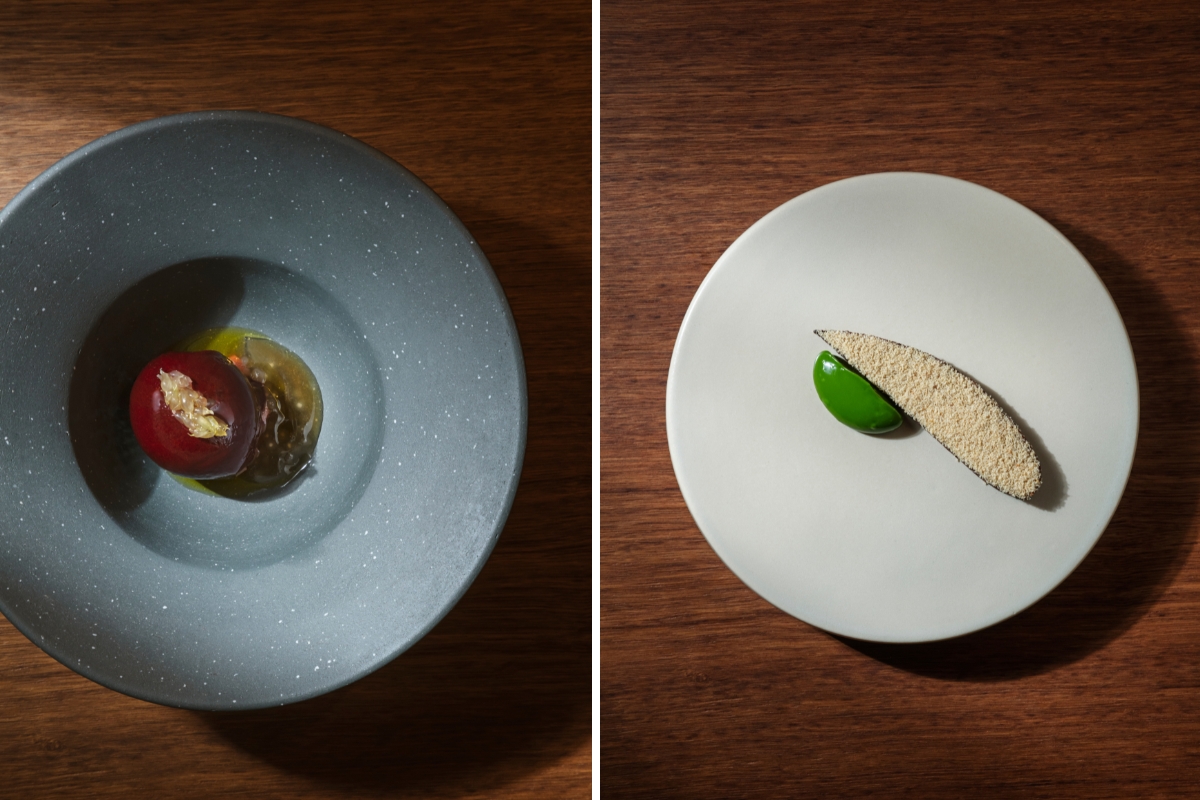
That culture grew out of many trips to Lagos, with the two of them trying every kind of spicy Nigerian dish and reflecting on how it could be combined with western cuisine. “I’ve always been aware of xenophobia and close-mindedness and our food is a reaction to it,” Jeremy explains. “The spice is taking people out of their comfort zones and forcing them to contend with other beliefs, ideas and people. It’s a bit rebellious, making it so intense. Our food was very spicy from the beginning. We toned it down but it comes back.”
“It was punchy,” Ire says with a smile. “People were dripping!”
Finding the best suppliers took years according to Jeremy, who would drive to meet producers, touring their farms and premises before returning with his team in tow. “We receive incredible produce because I’m very clear and honest about how we like to work. They know there’s no point in sending certain things to us, we want the best of whatever is available and will send something back if we can’t use it.
“If someone has caught a fish on a line, gently put it on ice and sent it to you, the quality is a different level to something that has been caught by a massive net, smashed into a box on a boat and covered in other slimy fish. Likewise, with our beef, we know what the cows are fed, where they graze, how they’re slaughtered and handled. That’s very important to me.”
Ageing their fish and meat and choosing slow-grown vegetables for their intense flavours has, in a few short years, propelled Ikoyi to cult status, the kind where visitors fly into London according to when they can get a table. Iré recalls the weeks after earning their second star as “insane, we had the busiest month we’ve ever experienced.”
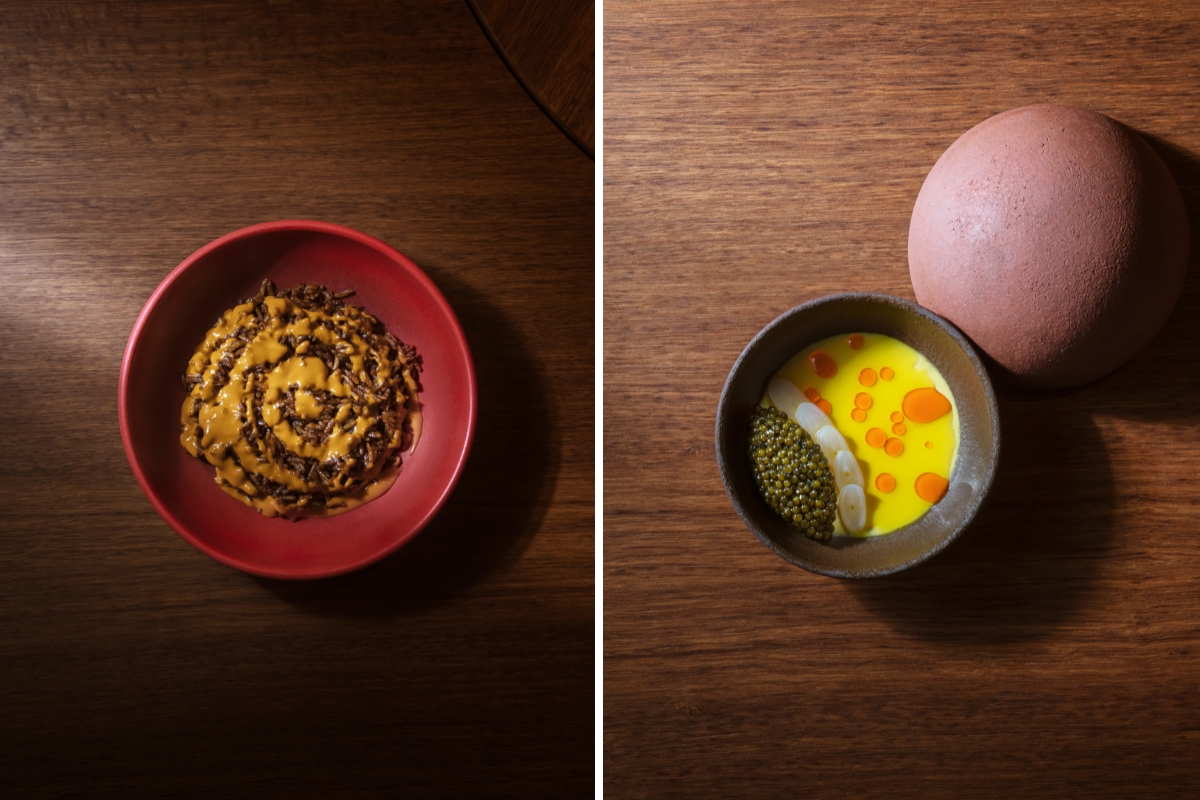
“It felt good getting that second star,” Jeremy adds. “It set us on a good path and created momentum at a time when we were still a bit of an odd restaurant which a lot of people didn’t understand. But being a cult restaurant - building a rapport with guests and cultivating regulars – that transcends awards. Having a following and being the restaurant to visit when in London is the holy grail for me.”
Ikoyi’s kitchen has already produced some exciting new talent, with many of their former sous chefs now running their own restaurants around the world, and one, Max Coen, recently winning his first Michelin star at Dorian in West London.
Following last year’s launch of their debut cookbook Ikoyi: A Journey through Bold Heat with Recipes, Jeremy and Iré’s goal is to continue to raise the bar, driving towards higher sustainability.
“We’re always trying to grow and improve things,” says Jeremy. “We’re still young, we’ve worked hard and gone far commercially and reputationally quite quickly but we have more fight in us to make the restaurant even better. It’s pure heart and passion every day.
“The biggest pressure comes from delivering extreme originality to regular guests who come to eat here multiple times a week or month. It’s tough but it sets us apart. Chefs from all over the world tell us when they’re coming and my brain is already selecting things for them and creating new and original twists months in advance.
“You can tell your friends or your girlfriend that you cooked an amazing meal and they’ll say, oh really? They don’t understand the detail and the beauty of it all. Only the guest knows.”
Read Next
Copenhagen’s Alchemist Mixes Gastronomy with Social Impact
Belgium’s Rare Flower: Botanic Santuary Antwerp
How Chef Eric Ripert Makes Le Bernardin Top of La Liste
